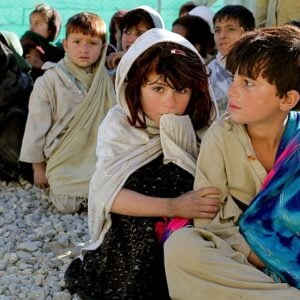An estimated two million children in Nigeria suffer from severe acute malnutrition (SAM), yet only 20% are currently receiving treatment. Recent primary data collected in July 2025 by the Nigerian Red Cross (NRCS) indicates that in three local government areas—Zango and Kankara in Katsina state, and Wamako in Sokoto state—between 47% and 47.8% of assessed children are affected by SAM. Broader assessments in Zamfara, Katsina, and Sokoto states reveal that more children are malnourished, both moderately and severely, than those who are well-nourished.
In response to the escalating crisis, the International Federation of Red Cross and Red Crescent Societies (IFRC) has launched an emergency appeal to support NRCS in scaling up interventions, aiming to reach one million people. Without immediate action, an estimated 1.8 million children risk death from SAM. The situation is compounded by severe shortages in healthcare facilities: 84% of facilities in six northern states report insufficient stocks of lifesaving ready-to-use therapeutic food (RUTF). Funding cuts have forced key partners to halt programming, and the UN has closed half of its health clinics in northeast Nigeria.
Historical data underscores the urgency: Médecins Sans Frontières (MSF) surveys at the end of 2024 reported SAM rates of 6.8%–14.4% in certain local government areas in Katsina, significantly lower than the 47%–47.8% observed in July 2025. The Red Cross is addressing this through funding for RUTF and deploying community volunteers to support SAM treatment in local healthcare facilities. Volunteers are also helping prevent moderate acute malnutrition (MAM) from progressing into SAM, with alarming figures in Maradun, Zamfara, where 48.5% of children are affected by MAM.
Community-based volunteers play a critical role in monitoring malnutrition and providing practical support. They teach women to prepare supplementary foods, such as Tom Brown—a locally produced mix of grains, soy, and peanuts—which helps prevent MAM from escalating. Francis Salako, Head of the Abuja Delegation for IFRC, highlighted the severity of the crisis, noting that in some local government areas nearly half of the children may require hospitalization to survive. He emphasized the urgent need for additional support to prevent widespread child deaths.
The crisis in northwest Nigeria is part of a broader push by IFRC to address hunger across Africa. The organization recently launched the Africa Zero Hunger Campaign, targeting six countries, including Nigeria, Kenya, Ethiopia, DRC, Mali, and Zimbabwe, focusing on durable, community-led solutions to strengthen food security and protect vulnerable populations from the impacts of malnutrition.






